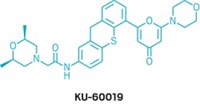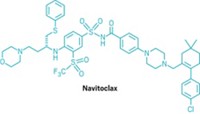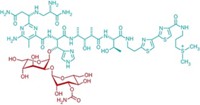Advertisement
Grab your lab coat. Let's get started
Welcome!
Welcome!
Create an account below to get 6 C&EN articles per month, receive newsletters and more - all free.
It seems this is your first time logging in online. Please enter the following information to continue.
As an ACS member you automatically get access to this site. All we need is few more details to create your reading experience.
Not you? Sign in with a different account.
Not you? Sign in with a different account.
ERROR 1
ERROR 1
ERROR 2
ERROR 2
ERROR 2
ERROR 2
ERROR 2
Password and Confirm password must match.
If you have an ACS member number, please enter it here so we can link this account to your membership. (optional)
ERROR 2
ACS values your privacy. By submitting your information, you are gaining access to C&EN and subscribing to our weekly newsletter. We use the information you provide to make your reading experience better, and we will never sell your data to third party members.
Biological Chemistry
Cancer Drug May Enable Recurrence
Temozolomide may not always be the best therapy for patients with glioma cancer
by Sarah Everts
December 16, 2013
| A version of this story appeared in
Volume 91, Issue 50
When glial cells in the brain or spine turn cancerous, a common therapy is surgical removal of the tumor followed by chemotherapy with temozolomide. The drug has been used for decades but in some cases may do more harm than good, note researchers led by Joseph F. Costello and Barry S. Taylor of the University of California, San Francisco. They discovered that for patients with some types of low-grade glial cell tumors, for which life expectancy averages seven years, temozolomide treatment is associated with recurrence of high-grade tumors, from which patients survive for only about one year (Science 2013, DOI: 10.1126/science.1239947). The team studied the mutated genomes of 23 excised tumors and compared them with the genomes of tumors that recurred in the same patients. Of the patients initially treated with temozolomide, 60% had recurring tumors that were hypermutated and more deadly than the original tumors. Because temozolomide is a mutagen—it makes adducts with DNA bases—the drug may be enabling the genetic changes that turn a low-grade tumor into a recurring high-grade tumor, the researchers conclude.





Join the conversation
Contact the reporter
Submit a Letter to the Editor for publication
Engage with us on Twitter